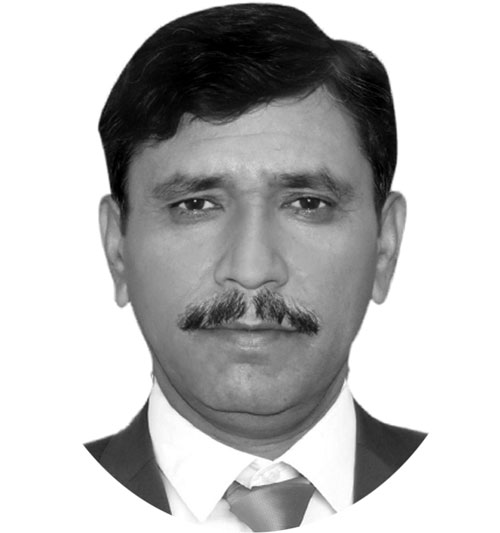Undermining grass-roots democracy
THE word ‘change’ has now become so [in-]famous that no sooner the word pops up people start looking around with bewildered eyes.
The lonely political party working for justice, had promised prosperity to the man in street if voted to power.
Wherefrom the resources would come, all was explained through widely-covered sit-ins and public rallies.
Around three years in power, the party in government has only stayed on the verge of failure on all mentionable accounts.
What is quite strange, if not naïve, is the way its supporters behave at the mentioning of inflation and equitable distribution of resources at the grassroots level, they turn blank for a moment but muster the courage to say stay that the ‘leader’ is just about to change his pace.
Let’s not talk about change, at all, but the bad luck that strikes us again and again despite all our efforts to find a way out. Slogans of revolution were once chanted, pointing to the reddening of horizons.
A party was at the forefront to turn the world upside down for the uplift of the downtrodden. It had taken along in its struggle the ‘dreaming poets’ who sold the dream of bringing down thrones and tossing the crowns up in the air.
This party leant to the left only to win elections. It went for revolution only half-the-way but soon pulled back by its royal concerns.
It is now, after a half decade, is openly and shamelessly protecting thieves and thugs and clergy standing by its side! Those who carried the burden of the dark night on the promise of a bright day have seen only a false dawn.
So, no body mentions about revolution. No one complains of false dawns, either.
Ever since the first state appeared on the face of the earth, its mission has been to enhance human dignity and justifying its existence through building a society on the norms of justice.
Thanks to capitalism and the democracy it has delivered, turbans, not to talk about crowns, are not left on the heads of the people, as all the headgear got tossed in the dirt.
We are living in wonderful times when civil regimes take pride in yielding business-friendly budgets, hoping the prosperity of the rich will trickles down to the grassroots. A false pretence,with no roots and out-rightly rejected by the masses.
Change of guards in Islamabad has made no difference whereby every coming budget carries the same patterns of collecting revenues from the lower and middle income groups and places the responsibility of its distribution in the hands of the rich and wealthy.
One can see cruelty at largeas essentials are taxed to serve the needs of the few but wealthy.
As for democracy, which we now have, the taxpayers’ majority is almost non-represented in the decision-making process of the state.
The mark of elite capture can be found in the absence of democracy in political parties, the constitution-making trends in parliament and the contents of the annual budget. Let’s not go too far in search of reality.
During the last thirteen years of elite democracy, the burden of taxes has been firmly placed on the shoulders of the common man who has yet to be provided with the basic amenities of life.
Even those who look sagacious and enlightened curse democracy but fail to raise finger at the nexus between government and business.
Bhutan is a snow-capped state in the Himalayas in our region. The light of new civilization is not there.
It’s a monarchy. The constitution says that the purpose of the state is to raise the level of happiness among the people.
There is a whole system in place to understand their aspirations and take up the projects to make them feel happier.
When the ruler of India, Modi, went to Bhutan to cover up his evil deeds in Kashmir and offered assistance to the host country for industrial development, the government there said let India teach our children about space science. Now, this country is a monarchy but has a lot to show the world a right path.
Even if you have some hopes for the independence of the judiciary, you must know that the most of the justice served through administrative measures in the same way, even if the judges happen to be God-fearing, it doesn’t make much difference.
Take the case of local governments.
It is the responsibility of the Election Commission of Pakistan to hold local government elections on time, just as it does for Parliament.
If there is any obstacle in this matter, it should ask the government, if it does not deliver, it should approach the judiciary.
The constitution is being blatantly violated, the provincial governments lack in required laws and there is no finance commission for equitable distribution of financial resources at the local level.
Now only those elections are being held which help the elite to preserve their traditional power base but not the ones that can empower the people at the grassroots level.
Who is to blame — democracy or the political parties? Despite the clear provisions in the Constitution, months have passed and local government elections have been postponed.
Now, who is responsible for depriving people of their basic right to self-rule at the grass-roots level —provincial governments or the Election Commission of Pakistan?
— The writer is contributing columnist, based in Islamabad.










